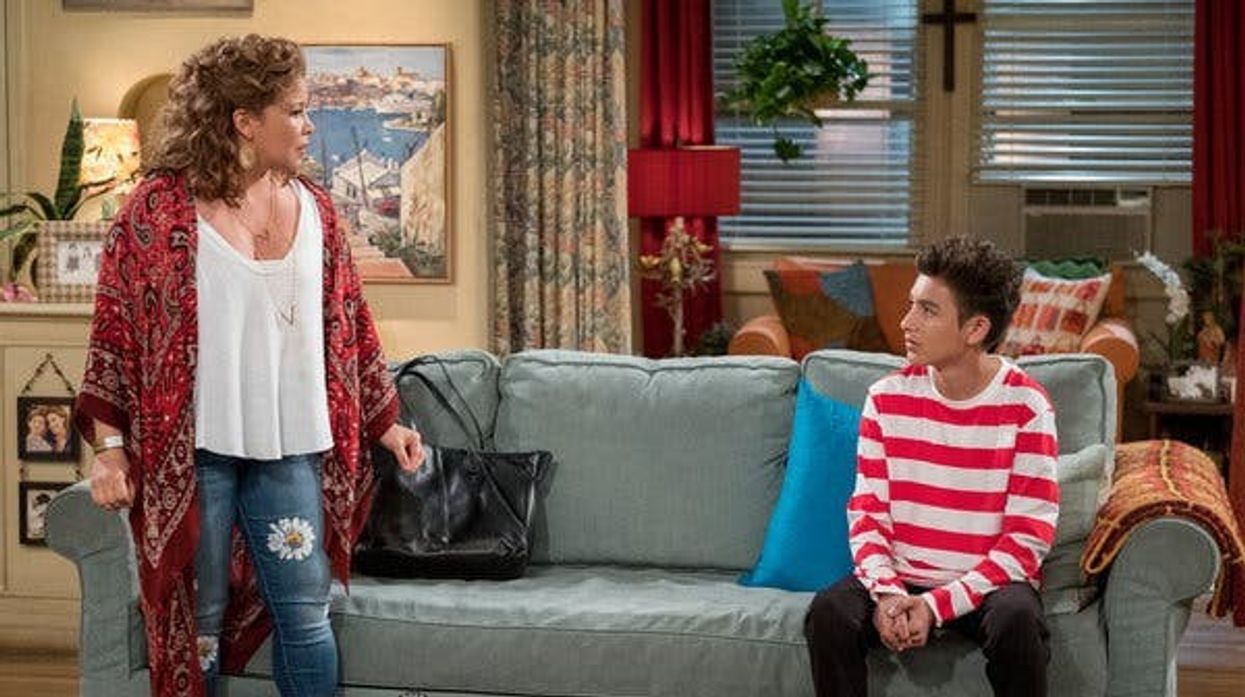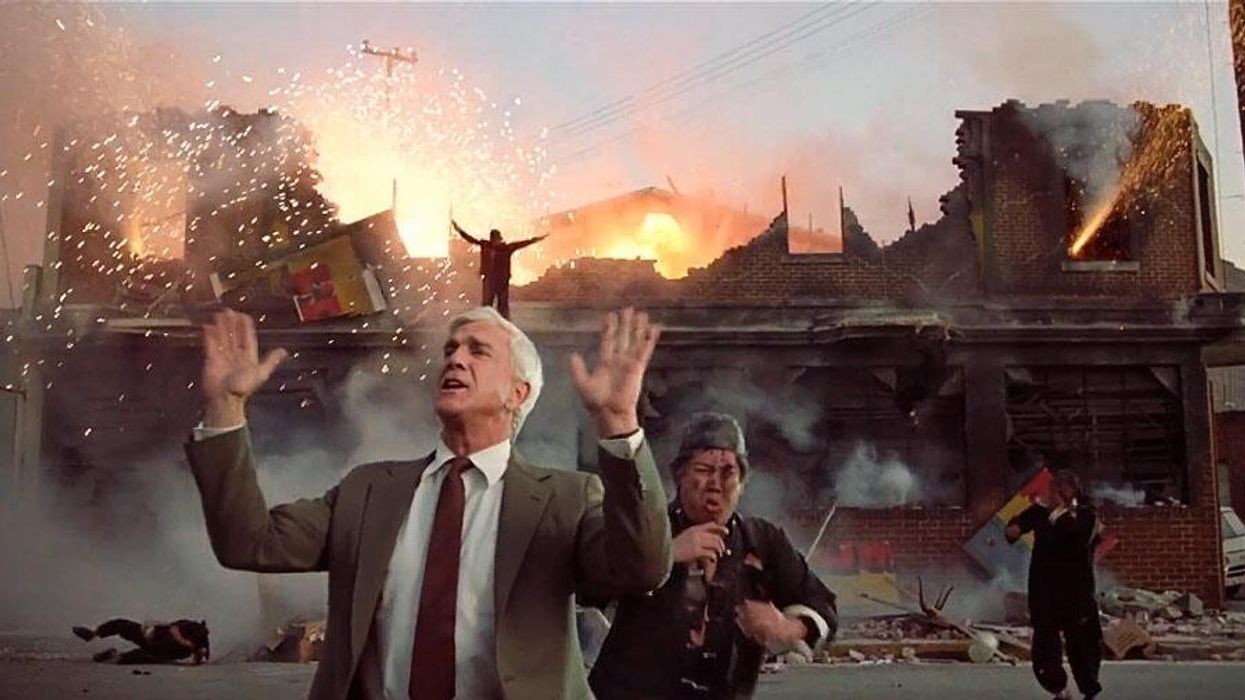What Happened to Those 'Very Special Episodes' of TV We Used to Love?
The "very special episode" used to be a staple of television. But it's since fallen by the wayside. Here's why.

Tell me if this has happened to you. You sit down on the couch, ready for some prime time entertainment, and then this disclaimer comes across the screen: "This is a very special episode..." possibly followed by a "Viewer discretion advised..."
Those were the disclaimers of my childhood. The stuff that played right before a "very special episode" of television played.
Here's why those episodes exist, where they come from, where they're going, and chat about their evolving purpose in the television and streaming landscape.
So make sure you ask your parents if it's okay to read this article...adult themes will be present. And parents, talk to your kids after today's article.
What is a very special episode?
This is a phrase, coined by advertising companies, that preceded an episode of television that dealt with complex social or controversial themes that might upset weekly viewers. Episodes usually aired with a disclaimer "Viewer Discretion Advised" in order to warn parents before the program began.
Topics for the show ranged from sex to racism, drugs, alcohol, teen pregnancy, cancer, and AIDS.
Where did these episodes come from?
TV writing back in the day was pretty stringent. You had three jokes a page on sitcoms, only dealt with fluff, and even the more serious shows at night never tackled anything that felt relevant to the times. The writers were chomping at the bit to dig in and talk about something real.
These episodes came about in the 1970s when so much was changing culturally that it felt weird that no one on television was talking about it. One of the most notable and talked about "very special episodes" was when Maude got an abortion. In the 1972 episode, which aired months before Roe v Wade, paved the way both for a different societal understanding of abortion and a new way to talk about these topics on television.
Writers jumped at the chance to bring levity to important topics but also showcase their talents at writing different genres or about important topics.
When were this episodes at their peak?
The "very special episode" rose to prominence in the '70s, the '80s, and '90s -- the latter decade being when they truly came into their own. Despite often being cheesy or feeling like episodes that are tonally off from the regular series, people loved these episodes because they thought they were making a difference. Take the Family Ties episode where Alex takes speed in order to handle the stress of applying to colleges.
The episode was able to confront a serious '80s issue while also still joking around.
In the '90s, these episodes tackled all sorts of issues. there was even one where DJ Tanner from Full House almost starved herself to death to fit into a bikini.
Are they still around?
The short answer is yes, but not as prevalent as you once thought.
Earlier this year, The New York Times talked about what happened to the "very special episode." They talk about an episode of One Day at a Time, where the writers and actors deal with vaping marijuana and racism.
Gloria Calderón Kellett, the series’s showrunner, talked about the importance of bringing these issues to light:
“One of the things we were talking about was vaping and, in California especially, with pot being legal now, how it’s confusing for some teenagers...The added thing in this family...is that, yes, drugs are a big deal. But also, if you’re a Latinx kid who looks like Alex and have darker skin — if you’re out with your white friends, guess who’s going to get in trouble?”
Other shows also tackle these ideas. Man with a Plan on CBS aired an entire episode on guns. The show tried to talk about having guns in the home, practical uses, and the second amendment., while still filling in the jokes for the average sitcom viewer.
Still, you can tell times have changed because while rating well, this episode generated little to no buzz in the mainstream.
Why?
What happened to them?
There are so many tv shows to choose from now that it's hard to make a "very special episode" anymore. People who want to see the stories usually presented in these episodes can find an entire series that deal with them. And use way more nuance and grace than you can pack into 22 minutes of a typical sitcom or the 45 minutes of a drama.
Can you imagine the drug episode of Family Ties standing next to The Wire?
Or the gang episode of 7th Heaven next to Sons of Anarchy?
It's hard not to look at these extreme situations and laugh. Modern shows that create these storylines have to make sure they don't fall into the typical holes of being too serious or too cheesy when it comes to discussing real issues. Also, modern tones have changed, so modern sitcoms and dramas have a lot more elbow room to dive into serious topics without making an entire episode about them.
Think about It's Always Sunny in Philadelphia. That show is allowed to be goofy, zany, and offensive while still giving itself room to talk about racism, drugs, addiction, and sexuality. I mean, what was more beautiful than the dance Mac did for his father to come out?
Is anyone doing a podcast about "very special episodes?"
Yes. Yes, they are.
Funny or Die has an amazing series about "very special episodes" called... "A Very Special Episode." They diagram '90's sitcom episodes that were given special treatment. As a 90s kid myself, it's fun looking back on some of the stuff I might have missed as a precocious child. Especially things like the cult on Boy Meets World and that time Urkle got hammered and fell off a roof.
Those were the days...
What's next? Revisit the laugh track!
Does the laugh track add to shows or take away from them? The answer is more complicated than you think.
Click the link to learn more!












